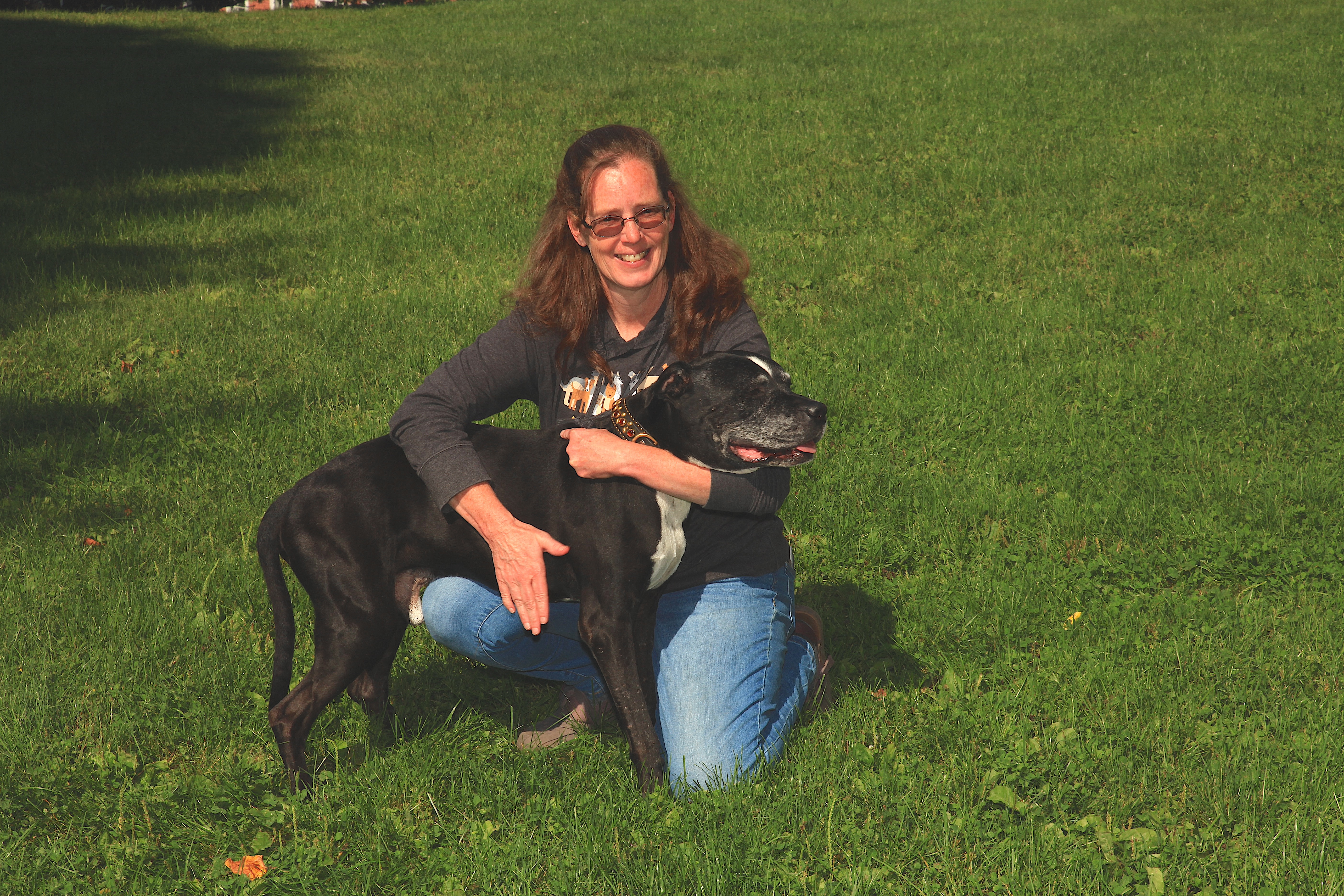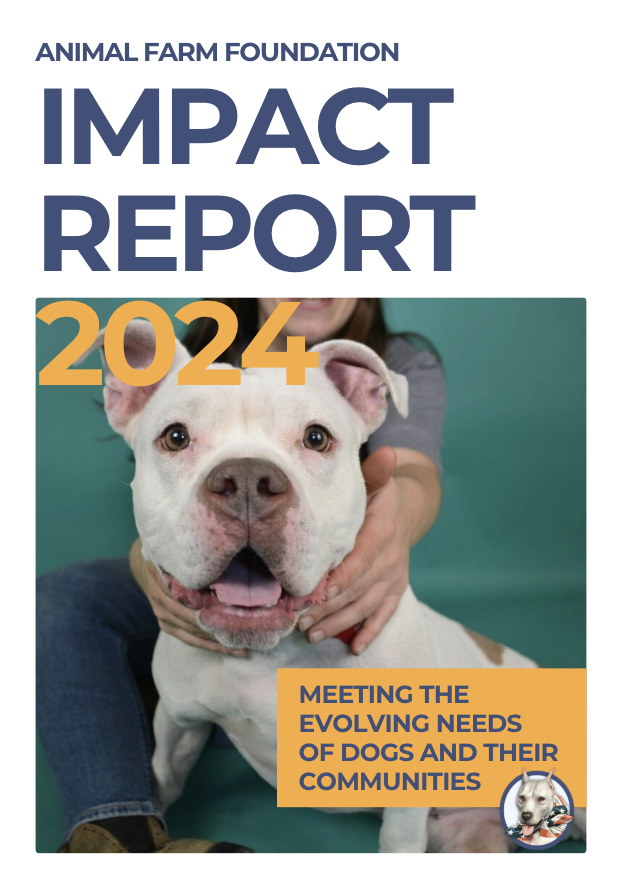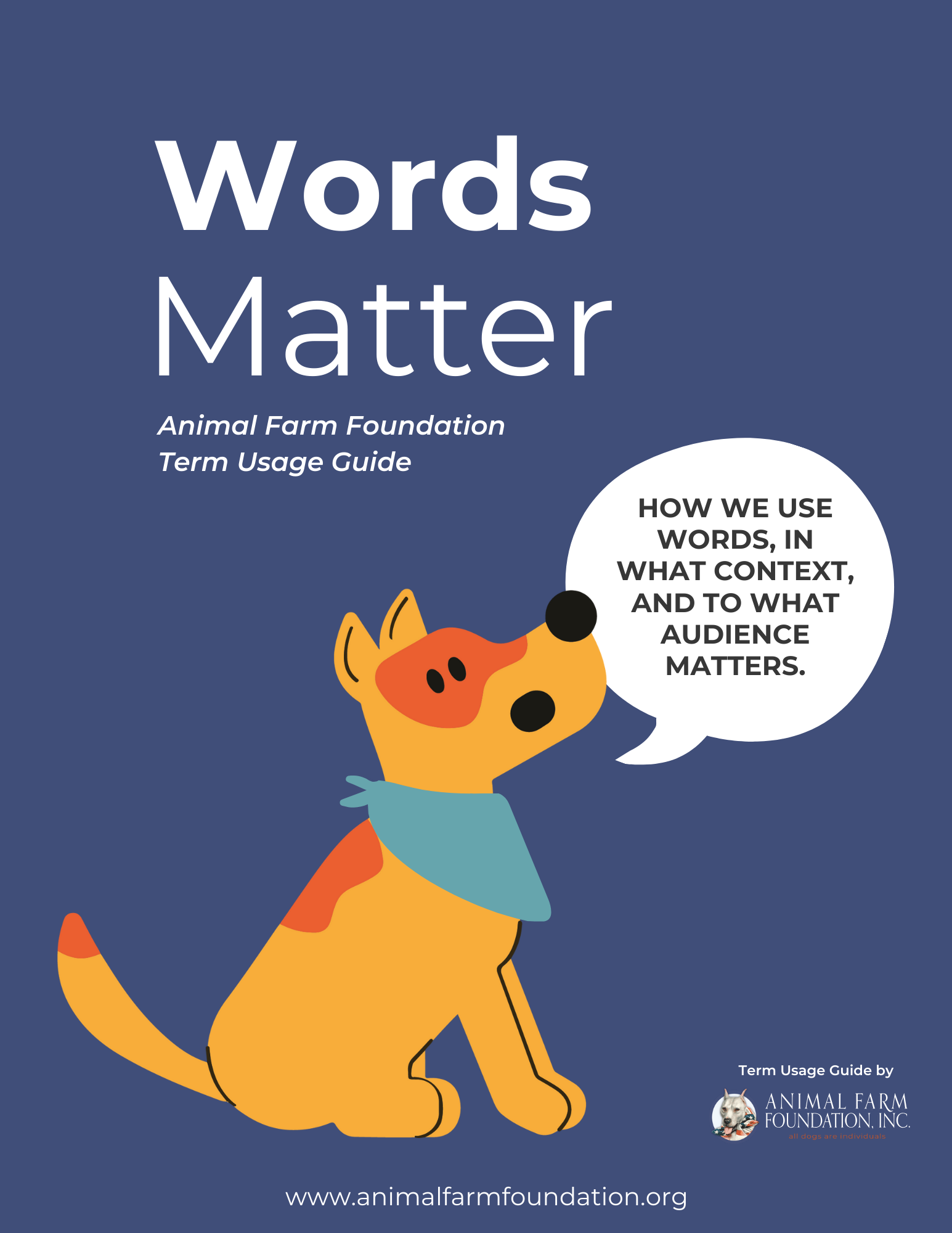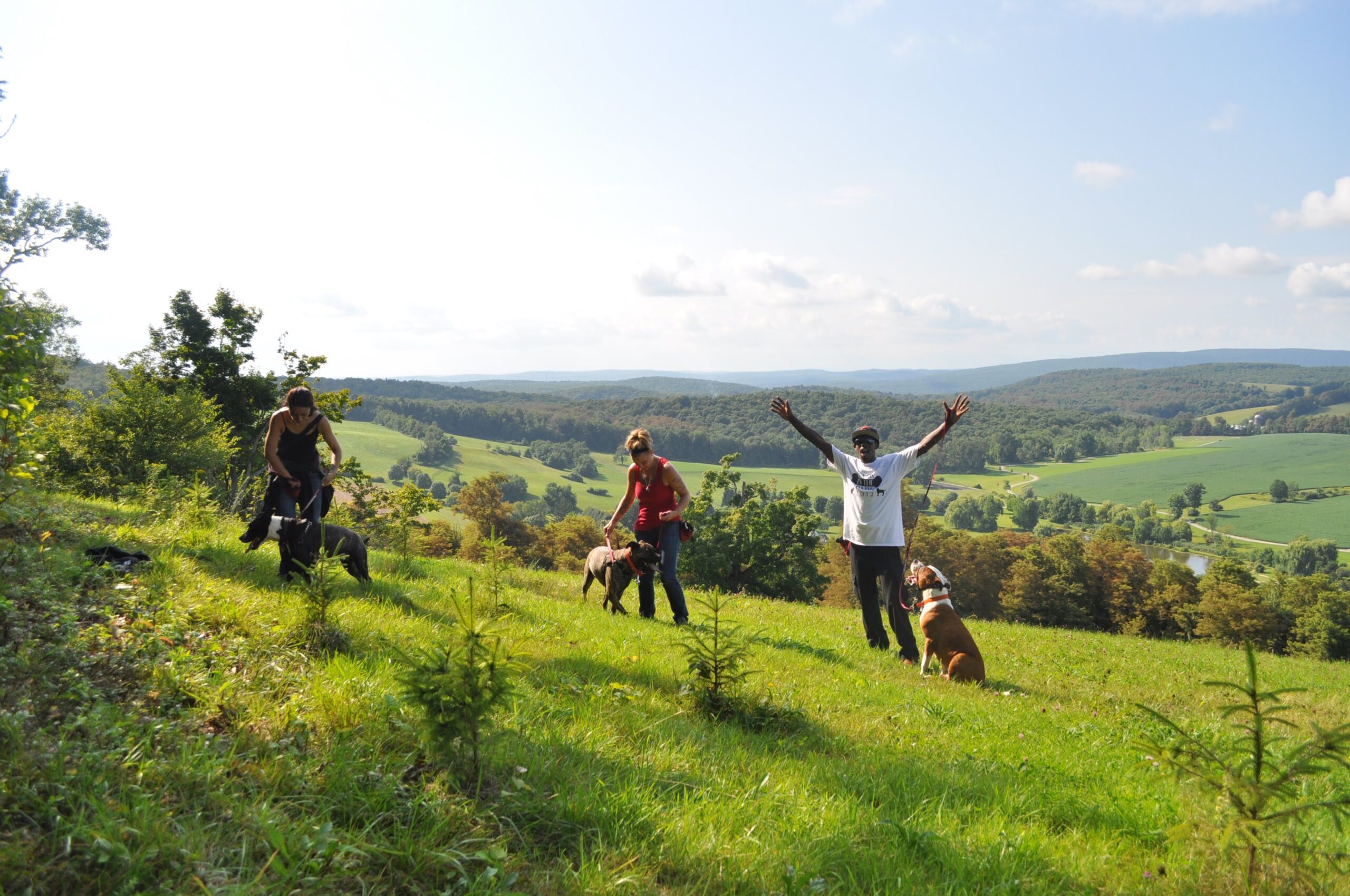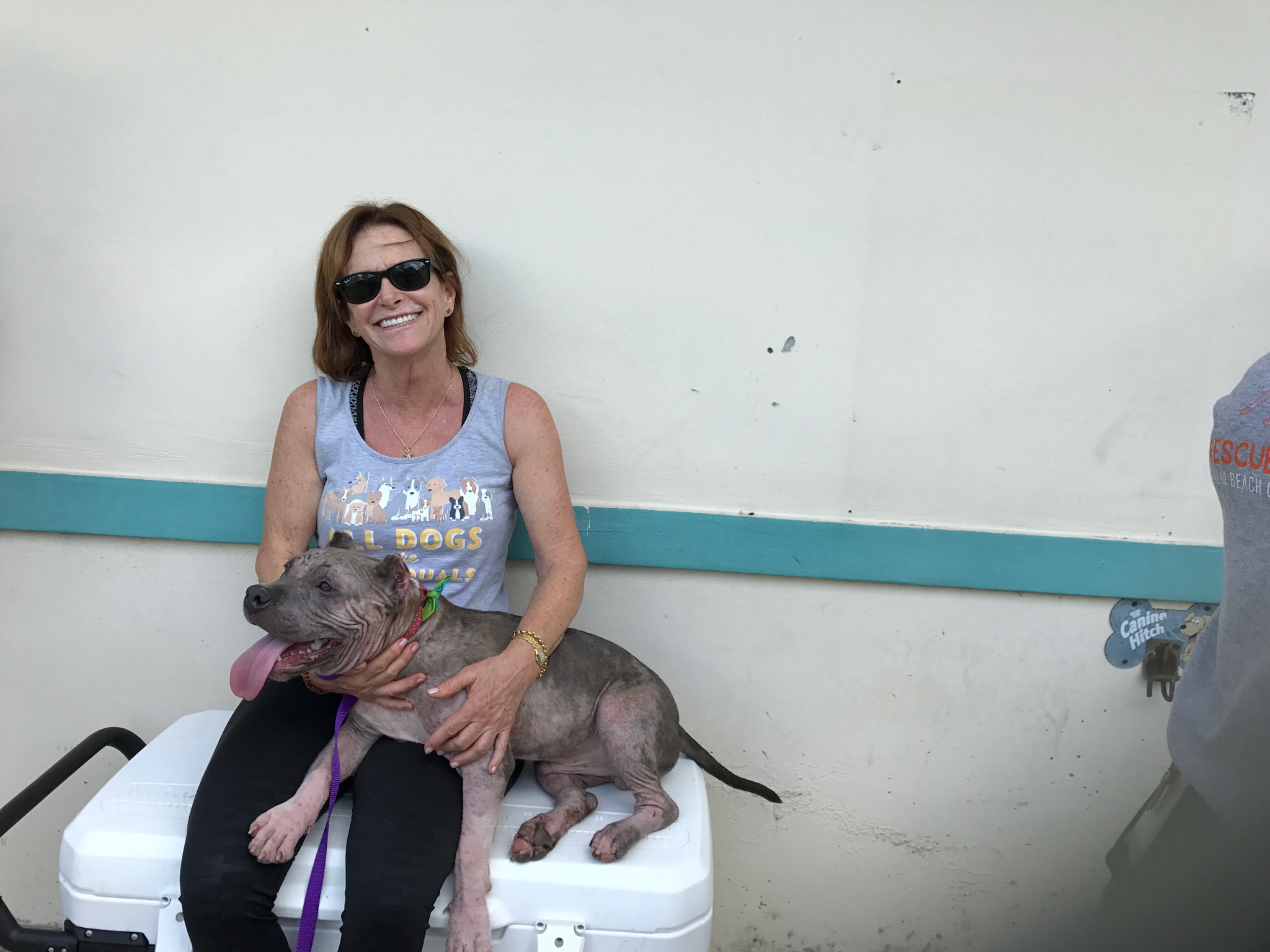Guest post written by Kristen Auerbach, Deputy Chief Animal Services Officer at Austin Animal Center in Austin, TX.
In 2008, Dr. Amy Marder wrote, “Instead of depending on inaccurate breed labels, we want people to choose their future companions based on accurate personality profiles.” To this end, she introduced the idea of using “American Shelter Dog” in place of a breed label because, as she said, “The problem is that breed identity elicits behavioral expectations on the part of the new owner, even though researchers have found enormous behavioral variability within all breeds.”
Eight years later, the word is finally getting out: The labels we assign to shelter dogs are both highly inaccurate and can result in dogs waiting longer to find a home. A recent study, titled, “What’s in a Name? Effect of Breed Perceptions and Labeling on Attractiveness, Adoptions and Length of Stay for Pit-Bull-Type Dogs” revealed that length of stay and outcomes for all dogs was negatively impacted by labels on kennel cards and suggests that breed labeling influences potential adopters’ perceptions and decision-making.
The research confirmed two important points:
- In some areas, the public may have negative perceptions of “pit bull” dogs that impact adoption rates. In our experience, this is different in each community. In some areas, people are lining up to adopt “pit bull” dogs.
- Breed labels can have negative implications on the adoption process for all dogs.
More importantly, thanks to another body of research, it is also proven beyond a doubt that breed labeling, based on visual identification, is not accurate.
This solid body of research can help shelters make two important changes to increase both the quantity and the quality of adoptions for all dogs:
Improve marketing for all pets, including “pit bull” dogs: marketing efforts must be improved in order to help the public get to know the individual dogs in the shelter’s care, which includes shining a light on “pit bull” dogs. By helping the public to see the millions of happy “pit bull” dog families we can help combat lingering stereotypes and misinformation. Looking for ways to market all dogs more effectively? See my recent articles: here and here.
Remove breed labels for all dogs: by doing away with inaccurate guesses, we remove information that is unreliable, yet perceived by the public as fact. Instead, we can work to get to know our adopters and determine what kind of personality traits they’d like in a dog, then help them find the individual dog that best meets their needs. With nearly 75% of all dogs in shelters being mixed breed, we can’t rely on breed standards based on our inaccurate breed guesses, to assess which dogs are the right matches. Getting to know both the people and the dogs will lead to better adoptions for every family.

Why are breed labels so misleading? For both the public and the shelter workers, breed labels come with a set of expectations, generalizations and stereotypes. These assumptions typically set unreasonable expectations for shelter dogs and can have detrimental effects on adoptions. It is not unusual for dogs of all kinds to be returned when they don’t meet the adopter’s assumptions about how that dog should behave, based solely on the breed label that was assigned at intake. By removing the breed, we open the door to more accurate conversations.
To further increase accuracy in our communications, we can remove breed labels from our “lost” pet listings, too. When shelters assign a breed label to stray dogs this can delay or thwart the dog being reclaimed by their owners who may have labeled their dog a different breed mix. The more accurate approach is to focus on the physical description of the dog: color, weight, any identifying characteristics, where the dog was found, etc.
However, the remaining hurdle for most shelters is that most shelter software systems still require us to select a predominate breed, even when we don’t know. And when we don’t know, too often we go with catch-all phrases like ‘pit bull mix’ or ‘lab mix.’ Our software systems do not allow us to select ‘unknown’ or even ‘mixed breed’ despite the plethora of research on the problems with guessing and labeling. This means shelters are stuck with using these labels on kennel cards, adoption contracts, and other official paperwork.
The good news is that as we now understand how inaccurate and possibly damaging those labels are, more and more shelters are pushing back on the limitations imposed by shelter software.
Despite the fact that breed labels couldn’t be removed entirely, several shelters across the United States, including Orange County Animal Services and my previous shelter in Fairfax County, Virginia, stopped using labels on our kennel cards. At the Fairfax County Animal Shelter, we saw an immediate increase in adoptions as our customers got to know dogs without being influenced by a label guess.
To further help our community understand this change, we quit using breed labels in our social media posts and put the emphasis of telling the unique stories of each of our dogs. At my current shelter, Austin Animal Center in Austin, Texas, we’ve seen an increase in adoptions since we dropped the labels off our kennel cards in late 2015.
We also changed how we speak about our dogs, and adopters are embracing us as the experts on this topic. When someone asks us, “What breed is that dog?” instead of making a guess and probably being wrong, we say, “The vast majority of our dogs are of mixed breed heritage and when we guess a breed, we’re often wrong.” People really do understand this and they appreciate our honesty.
If there are concerns about housing restrictions or other breed discriminatory policies, we always address those potential issues openly with adopters. This approach is about being accurate and honest about what we know and do not know. If there are concerns that a dog may be perceived as a restricted breed by another member of the community, such as animal control or landlord, we address this. Removing breed guesses doesn’t restrict information, it opens the doorway to more accurate, in-depth conversations.

To learn why we changed how we talked about breed, check out this earlier post on the subject. Published last summer, it will tell you how you can make immediate changes in your shelter to increase adoptions, shorten length of stay and help every dog in your care be seen for who she is, not her label.
Thankfully, some shelter software companies are hearing the message that shelters want to have the discretion to choose a ‘mixed breed’ or ‘unknown’ label for dogs of unknown heritage (the vast majority of dogs in shelters today). They’re asking questions and are looking for ways to overcome the obstacles that have prevented this change in the past. It seems likely shelters will be able to choose not to use breed labels in the relatively near future.
The bottom line is we have nothing to gain by perpetuating subjective labels as accurate or even helpful information. In recent weeks, shelters such as the Arizona Animal Welfare League and Dallas Animal Services have announced they would remove all breed labels from their kennel cards. They join the growing numbers of shelters nationwide who are no longer perpetuating guesses at breed or breed mix as reliable information.
There are still many challenges and obstacles to overcome for shelters and dog owners in our communities, but soon I predict we will have won another victory for all dogs when we are no longer required to label shelter dogs with inaccurate breed labels.
Want to hear more about this? Join me and Caitlin Quinn (Director of Operations at HeARTs Speak, Inc.), speaking on behalf of Animal Farm Foundation, at the Humane Society of the United States Animal Care Expo this May. We’ll be telling you how to save more lives by changing how you think and talk about breeds and sharing tips for how you can remove breed from the equation now. Removing breed labels is easier than you think and soon we hope it will be even easier!


